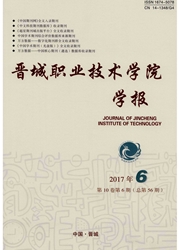

 中文摘要:
中文摘要:
清水江苗人结群以“姓氏”“世系”“酒堂”“聚落”和姻亲网络为主.苗人聚落以大姓为主,拥有姓氏符号权,后来者需要改姓入族;作为开寨始祖的后裔具有祭祀权,充当鼓藏头和活路头;酒堂为血缘或拟制血缘群体,同一酒堂严禁通婚,但酒堂可以由不同姓氏、不同世系的家屋构成,同一姓氏和世系又可破姓开亲(破鼓开亲),分属不同的酒堂.苗人“鬼蛊”指控的干净与不干净之分类以“家屋”为对象,其目的在于维护“内卷化”的婚姻圈和理想的婚姻模式,即“姑舅表婚”.
 英文摘要:
英文摘要:
In the Qingshui River region, the Hmong cluster themselves together mainly based on " surname","pedigree", "wine hall","settlement" and marriage network. The Hmong settle mainly by great surnames. They have the right to set the surname symbols and the newcomers have to change their surnames in order to join them. The descendants of the founding fathers of the communities have the right to worship, and to act as the heads of Guzang and of Huolu. Wine halls are gathered by the consanguinity or the pro - forma consanguinity groups. Members of the same wine hall are prohibited from intra - marriage. But wine halls can be made of by different surnames and different lineaged families. The same surname and pedigree can break the surname system to get married (break drums to get married), for they belong to different wine halls then. The allegation of' whether the Hmong' s "ghost insanity" is classified as clean or unclean is based on "families", the purpose of which is to maintain the "internalized" marriage ring and the ideal marriage patterns, that is, "cross - cousin marriage".
 同期刊论文项目
同期刊论文项目
 同项目期刊论文
同项目期刊论文
 期刊信息
期刊信息
